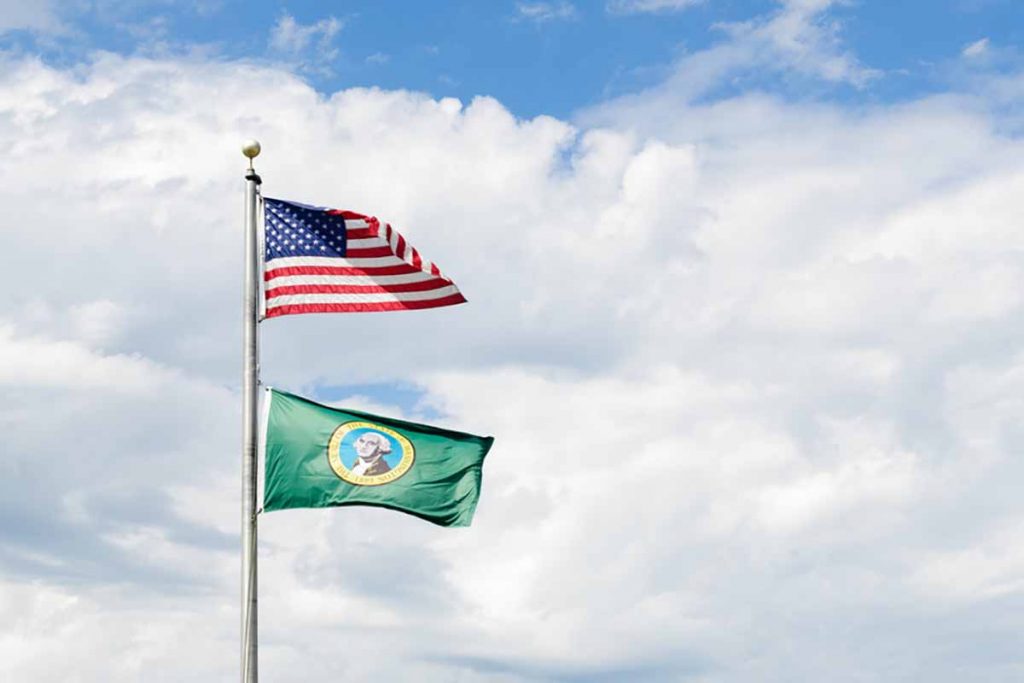
Over $500,000 was awarded to nine local governments and one university to support local markets for recovered materials. | Jeffrey B. Banke/Shutterstock
A new recycling development center in the Pacific Northwest has issued over half a million dollars in grants to help boost domestic markets for recyclables.
Created by legislation passed in 2019, the Washington state Recycling Development Center this month awarded 11 grants worth over $500,000 to support local markets for recovered materials. The funding went to nine local governments (two Seattle departments each received a grant) and one university, according to a press release from the Washington Department of Ecology, which helps administer the center.
The program was created to help the state boost regional outlets for material in response to the loss of exports markets, notably China, for curbside bales. Since then, other global pressures have piled onto the recycling industry.
“Recent changes to some of the state’s local recycling programs are examples of the stark choices our government partners are facing in the midst of multiple emergencies, including the COVID-19 pandemic, world-wide economic upheaval, and the recycling crises,” Kara Steward, who coordinates the center, stated in the release. “Through these one-time awards, we are helping communities across the state develop sustainable domestic markets and identify market opportunities for recyclable materials.”
The grants were for different projects in a variety of jurisdictions. For example, a $50,000 award to the Lopez Solid Waste Disposal District on rural Lopez Island, accessible by ferry, will fund a startup space for entrepreneurs to divert local recyclables into marketable goods. Another $50,000 grant went to Chelan County, which is in the Cascade Mountains, to buy a glass pulverizer to recycle and repurpose post-consumer glass. As a third example, King County, which includes Seattle and a number of suburbs, received $50,000 to conduct a comprehensive recycling infrastructure analysis for the state and another $50,000 to research policy options and financial tools and develop a business assistance program to increase use of recyclable materials.
The 2019 bill creating the center, House Bill 1543, directed the state to fund the project with some of the tax revenues from a 0.015% sales tax on 13 categories of consumer products that frequently end up as litter. Specifically, the bill shifted some more of the tax revenue away from litter prevention and pickup projects and toward the Department of Ecology so the department could pay for the new center and other efforts to respond to the loss of the Chinese market.
More stories about local programs
- Study links tagging tactics to lower contamination rates
- Interstate Waste buys North Atlantic in Connecticut
- Iowa firm recycles wind turbine blades into concrete